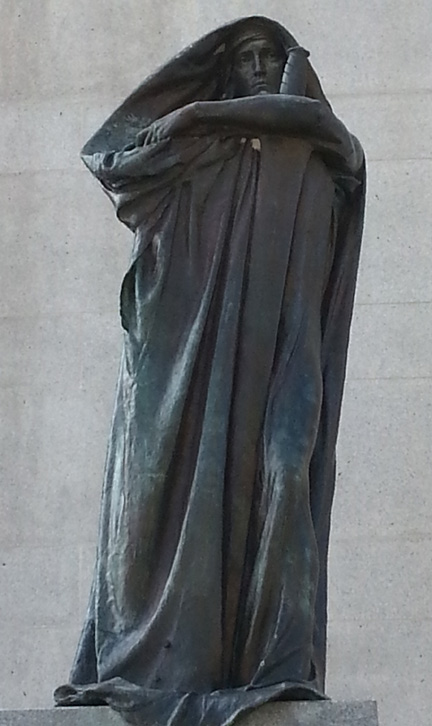
The Supreme Court of Canada has a busy week ahead of it, with seven hearings relating to real estate, medical malpractice, and evidence at murder trials. In addition, the court will hear two court martial appeals, one of which challenges the National Defence Act for violating the defendant’s right to prosecutorial independence.
 April 25 – Federal – R. v. Cawthorne
April 25 – Federal – R. v. Cawthorne
Criminal law: Ordinary Seaman Cawthorne was convicted by a court martial of possession of child pornography. The porn was found on Cawthorne’s lost cellphone by someone trying to identify the owner of the phone. The respondent admitted to possessing the images, but claimed to not realize they were of underage children. The respondent successfully argued on appeal that the evidence was inadmissible. One judge was in dissent. The SCC will review the admissibility of such evidence at court martial.
Read the Court Martial Appeal Court decision
April 25 – Federal – R. v. Gagnon
Charter of Rights: Warrant Officer André Gagnon and Corp. A.J.R. Thibault are members of the armed forces who were charged with the sexual assault of a subordinate officer. They were acquitted at trial. When the complainant, former corporal Stephanie Raymond sought an appeal, the respondents filed a motion to dismiss on grounds that the National Defence Act infringes on the defendant’s right to prosecutorial independence. The Court Martial Appeal Court found the relevant provisions invalid but suspended the ruling until June 21, 2016. The SCC will review whether the Charter infringement is reasonable.
Read the Court Martial Appeal Court decision
André Gagnon not guilty of sex assault, finds military court, finds military court, CBC
Canadian soldier acquitted of sexually assaulting subordinate, The Globe and Mail
April 26 – British Columbia – Musqueam Indian Band v. Board of Review
Aboriginal law: The Shaughnessy Golf and Country Club operates its golf course on land belonging to the Musqueam Indian Band, for which it pays property taxes. The Musqueam Indian Band is appealing a decision by its board of review that set taxes based on the value of the land as a golf course. The band argues that the land is much more valuable given its potential for residential development. On appeal, the court reasoned that Shaughnessy’s use of the land is restricted and therefore the value of the land must also be limited.
Read the British Columbia Court of Appeal decision
Related news story:
Musqueam Indian Band golf course case heads to Supreme Court of Canada, CBC
April 27 – Ontario – Royal Bank v. Trang
Privacy law: Phat and Phuong Trang own a property that makes up part of a judgment awarded to Royal Bank of Canada. The sheriff, however, refuses to sell the property without a mortgage discharge statement. However, the mortgage provider, Bank of Nova Scotia, says it cannot produce the statement without consent due to provisions within the Personal Information and Electronic Documents Act. RBC is challenging the use of PIPEDA to block the sale of a property that is the subject of a court award.
Read the Ontario appeal court decision
April 28 – Quebec – Benhaim v. St-Germain
Medical malpractice: The applicants Albert Benhaim and Michael O’Donovan are physicians who lost a medical malpractice suit against Cathie St-Germain, a woman who argued they neglected to spot a nodule appearing in the X-rays of her spouse, who then died of cancer. The Superior Court held that the physicians were at fault in this case but that causation had not been proved. The appeal court set aside the decision.
Read the Quebec appeal court decision
Related articles:
Family of non-smoker awarded $1.7 million, Law in Quebec
April 29 – Saskatchewan – Shaoulle v. R.
Criminal law: John Thomas Shaoulle was convicted of first-degree murder by a judge sitting without a jury. The evidence against him was circumstantial but the judge found it sufficient to convict. The judgment was upheld on appeal, with one judge in dissent. The SCC will review the weight of circumstantial evidence in such matters.
Read the Saskatchewan Court of Appeal decision
Related news stories:
Prince Albert murder case may go to Supreme Court, Prince Albert Now
Wollaston Lake man found guilty of first-degree murder, Prince Albert Herald
April 29 – Quebec – Laliberté v. R.
Criminal law: Pierre-Olivier Laliberté was convicted of first-degree murder and attempted murder. His DNA was found under the fingernails of the surviving victim. At trial, the judge denied attempts to bring into evidence statements by the victim that she did not know the assailant. The judge also instructed the jury that they could disregard the appellant’s alibi if they felt it was fabricated. The conviction was upheld on appeal, with one dissent.
Read the Quebec appeal court decision
Related articles:
Pierre-Olivier Laliberté perd sa cause en Cour d’appel, Radio-Canada
La Cour suprême entendra Pierre-Olivier Laliberté, Radio-Canada